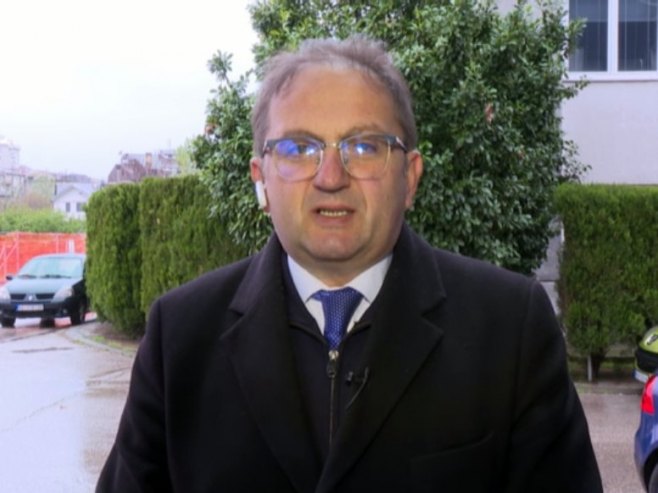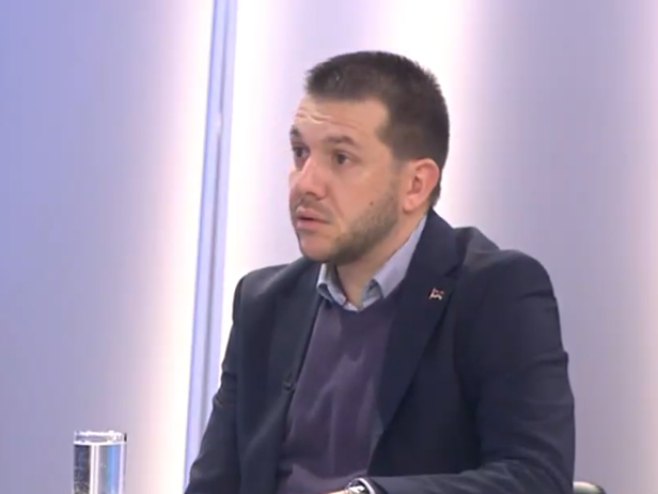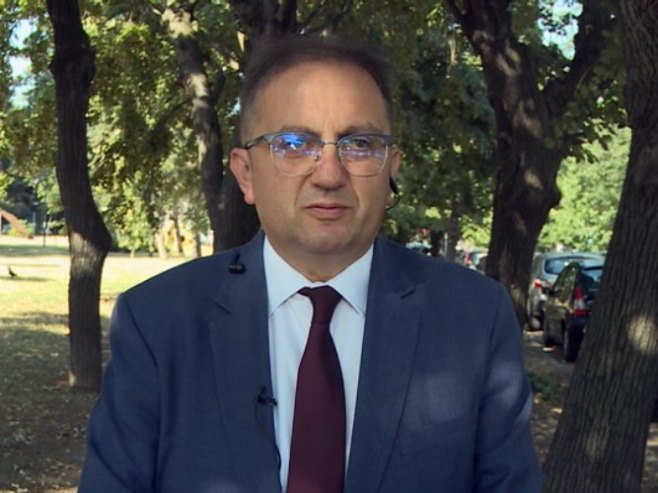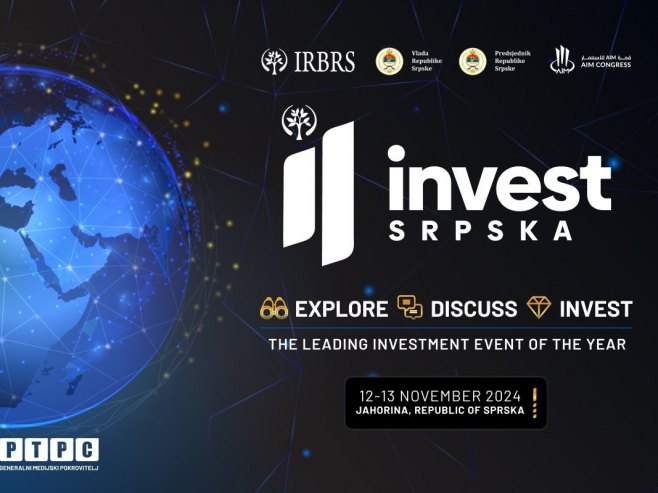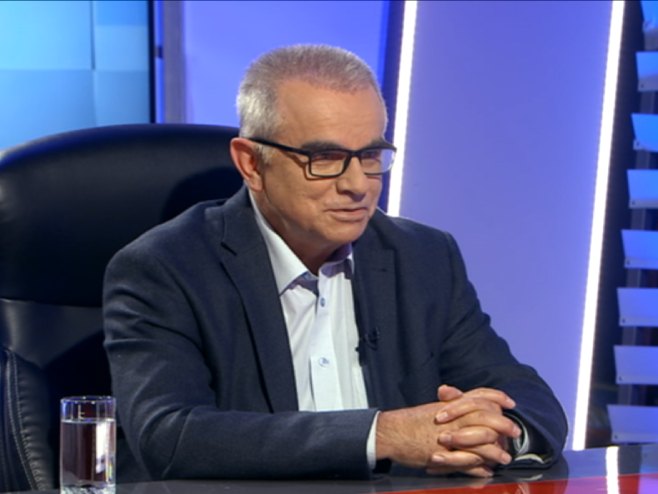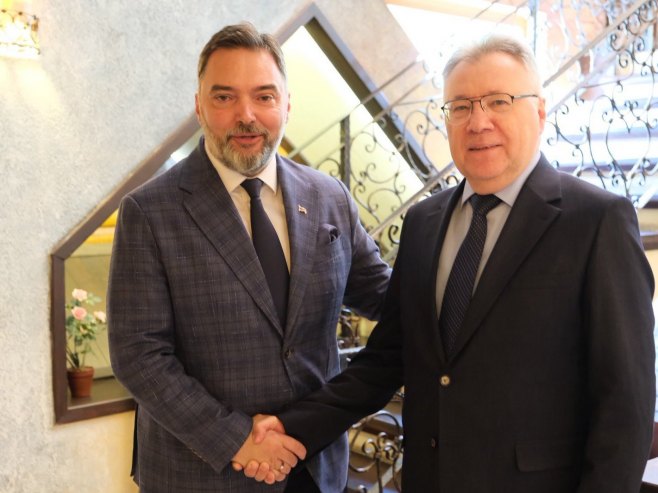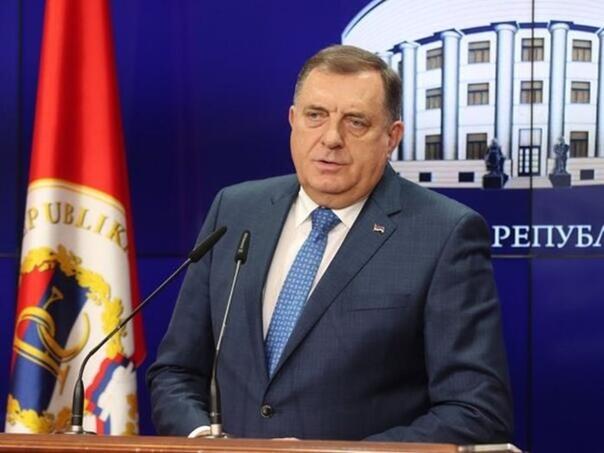Political analyst Stevica Deđanski assessed that the outcome of the meeting between Republika Srpska President Milorad Dodik and Russian Foreign Minister Sergey Lavrov in Moscow was more than positive, stressing that the most uncomfortable question Russia might raise at the UN Security Council session on Bosnia and Herzegovina on October 31 could be – who is Christian Schmidt and whom does he represent?
“The most uncomfortable question Russia could pose is also the simplest – who is Schmidt and whom does he represent? That would open Pandora’s box: how was he appointed? If that is possible, then anyone – you, me, or any other person in the world – could simply proclaim themselves to be something,” Deđanski emphasized.
He noted that Russia will ask concrete questions – why a man who has no authority, was not officially appointed by the UN Security Council, nor received the support of Russia and China, can ‘ignite fire in the Balkans.’
“Whose goal is this? Do Berlin and Brussels want to reopen a war situation? There are millions of questions Russia can ask, but throughout, the central point will likely be the repeated and blatant violations of international law,” Deđanski told SRNA.
He added that he also had in mind the staged court proceedings against Dodik, noting that Schmidt stands at the center of it all.
Deđanski stressed that there are many uncomfortable questions and that it is essential to ask them in a place where they will be heard – the UN Security Council.
“It does not matter whether Western countries hear it, since they do not care and consistently violate international law anyway. What matters is that other states, including those that were once against the Serb people because they believed we were the ones breaking the rules, hear the truth,” he said.
According to him, it is important to speak out everywhere and at every moment, especially where there are friends of the Serbs – Russia and China – who have influence on many other countries worldwide.
He pointed out that Dodik’s announcement of continuing the diplomatic offensive demonstrates several things, the first being that Republika Srpska and its president are ready for the struggle, which sends a very positive signal to the Serb people.
“This means there is no giving up, despite all the pressures, lies, and violations of international law. We continue forward. The fact is that the Serb people now have far more friends in the world than ever before, and we need to make use of that,” Deđanski underlined.
He added that everyone now sees that it is not Serbia, Republika Srpska, or the Serb people who are violating international law, but rather other actors, especially those from the West.
“The other good thing is that we have received support from our friends. We have no greater friend in the world than Russia, and it is a good thing to have such an ally – one who, unlike others with whom we have good relations, is ready to defend us concretely, in real positions, as they have done many times before,” he said.
Deđanski noted that Russia’s presidency of the UN Security Council and the upcoming session on Bosnia and Herzegovina on October 31 come at the right moment, immediately after the referendum in Republika Srpska scheduled for October 25.
He said he expects that the Serb people will give plebiscitary support to Dodik in the fight against Schmidt at that referendum and stressed that both the Government of Republika Srpska and Dodik, as well as everyone else, must work to ensure the highest possible turnout to demonstrate the strength of the Serb people.
“And then Russia, along with all the questions it has to pose to the international community, will also use this as an argument to show the opinion of the Serb people. All in all, the most important thing is to maintain good relations with Russia – something Dodik has been doing for a long time, not ad hoc or out of convenience, but consistently showing respect and developing cooperation as much as possible under the given circumstances,” Deđanski concluded.
Source: RTRS
